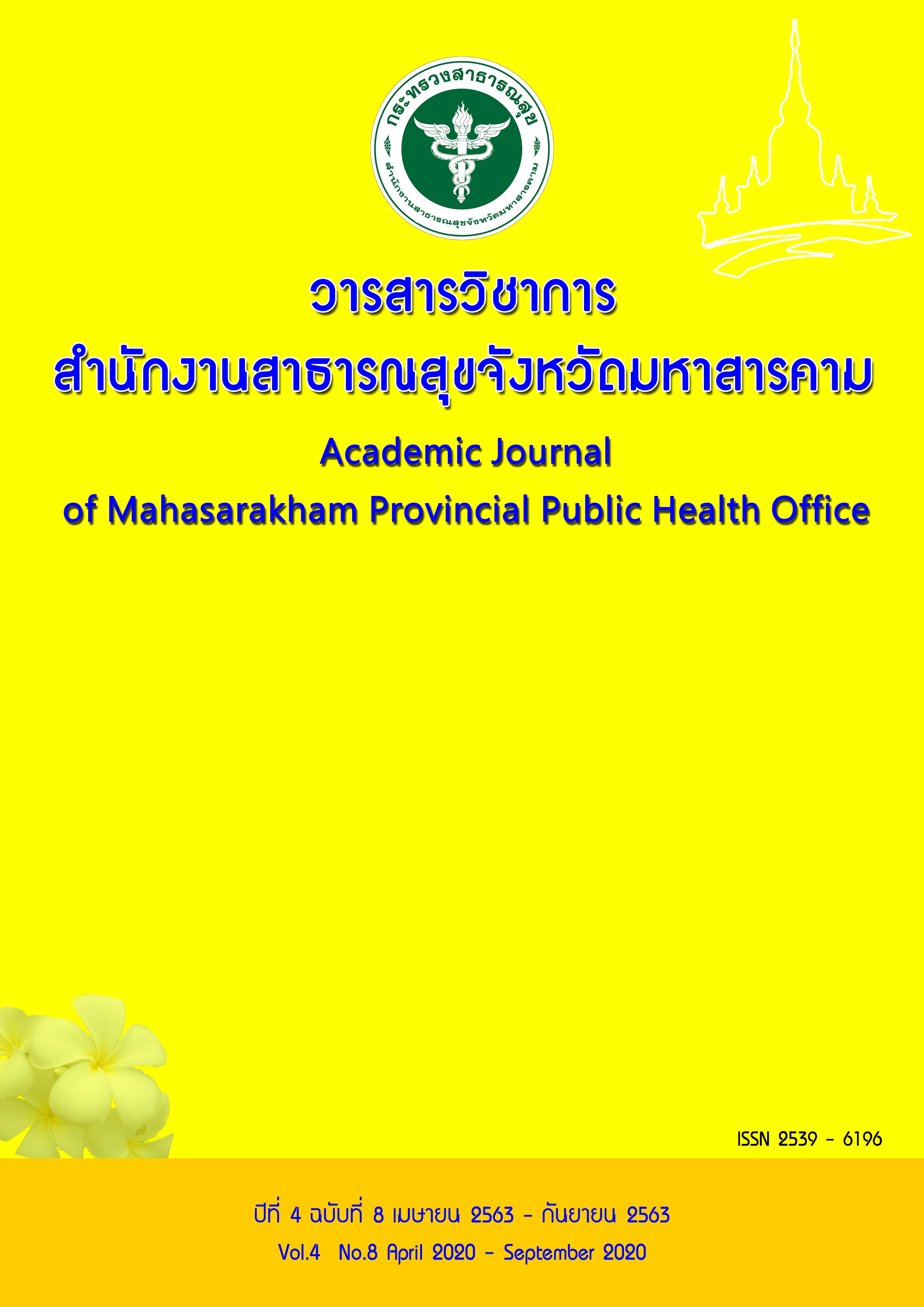Nursing Care of Patients with Atrial Fibrillation Treated with Warfarin : Case Study
Abstract
ABSTRACT
Objectives: To study the medical care of patients with atrial fibrillation (AF) treated with warfarin by a clinic in a hospital.
Methods: The study was conducted from December 11, 2019 to May 27, 2020 to compare 2 cases of patients treated at a hospital in Trang Province. Research tools included interviews, observation and medical records.
Results: It is found that the 2 patients show both similar and different outcomes of warfarin treatment in several aspects as follows.
In terms of diagnosis, both of them have comorbidities of AF which match the information provided by the Heart Association of Thailand.
In terms of risk factors of AF, the first patient suffers rheumatic fever and the other smokes. Both of the patients have comorbidities of AF, namely Acute Coronary Syndrome (ACS).
In terms of symptoms and medical signs, the first patient came to the hospital owing to complications of warfarin overdoses; whilst the other patient had normal vital signs, but the patient’s chest x-ray confirmed the diagnosis of pulmonary edema. Both patients were given thrombolytic agents but developed different complications as follows. The first patient had bleeding due to warfarin overdoses, and an intramuscular injection was given to hasten coagulation and warfarin was discontinued. The other patient suffered the complications so continued taking the same dose of thrombolytic agents and diuretics. Responses to warfarin are related to ages, Body Mass Index (BMI), and complications; but gender, alcohol consumption, and smoking don’t affect drug dosage.
Morbidity: These 2 cases are similar in terms of pathological features of AF which requires warfarin to prevent blood clotting. Clinical factors affecting responses to warfarin which are related to the drug dosage include ages, BMI, and comorbidity including Congestive Heart Failure (CHF) and hypertension; whilst clinical factors which do not affect responses to warfarin are gender, weight, and height. As for environmental factors, alcohol consumption and smoking do not affect the drug dosage; but eating food containing a huge amount of vitamin K results in taking high warfarin dosage. Both patients admitted the same failure, namely, a lack of understanding and full awareness of taking warfarin, behaviors when forgetting to take the medicine, exercise while taking warfarin, intake of other medicines while taking warfarin, and eating vegetables. The first patient’s score for knowledge of self-care of was higher, that is, from 75% to 95% after obtaining advice; while the other patient’s scores before and after receiving advice were 90% and 100% respectively. The scores are related to the complications occurred in case of the first patient.
Conclusion: Nurses in warfarin clinics play a vital role in analyzing patients’ problems before seeing doctors; so the nurses must have great knowledge of pathological features of the disease and warfarin. Self-care assessment forms for patients who take warfarin will help carry out evaluation more thoroughly. When the patients are diagnosed and treated by the doctors and treatment alteration occurs, the nurses must develop and clearly explain discharge planning by providing the patients with advice including self-care, how to take the medicine accurately, and treatment efficacy assessment. The medical advice will render the patients safe and live happily with the disease without complications.
Keywords: Atrial Fibrillation (AF), Warfarin


